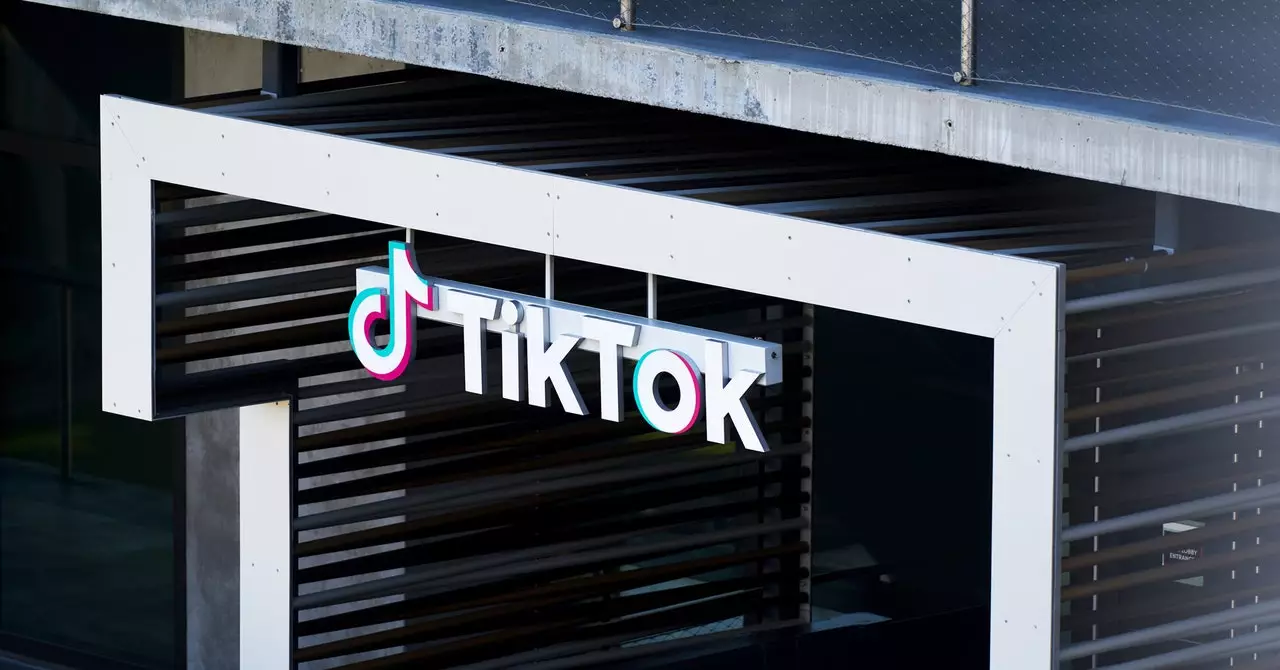As the U.S. elections draw nearer, the spotlight on tech companies like TikTok regarding their potential regulatory risks has intensified. The app, which has become a cultural phenomenon, particularly among younger demographics, faces significant scrutiny over its ownership by the Chinese company ByteDance. Yet, amidst this atmosphere of uncertainty, an intriguing phenomenon has emerged within the company itself: a noticeable disengagement among employees regarding the looming political discourse.
Many TikTok employees appear largely unfazed by the potential impact of the elections on the app’s future. For instance, a product manager based in San Jose, who chose to remain anonymous due to company policy, expressed a sense of indifference toward the discussions surrounding a possible ban or the implications of the upcoming elections. “Before I joined TikTok, the idea of a ban worried me significantly, but now that I’ve been here, it’s scarcely a topic of conversation,” he conveyed. This mindset contrasts sharply with the growing concerns from external observers who speculate on TikTok’s viability in the U.S. market.
Conversations and strategic planning within TikTok’s teams seem to persist as though the threat of a ban is merely a distant rumor. This paradox raises questions about the coping mechanisms employees utilize to navigate the uncertain landscape of their employer’s future. Rather than lamenting the political turbulence, staff members predominantly prefer to focus on their day-to-day projects and responsibilities.
In an informal survey conducted by WIRED with various TikTok and ByteDance employees willing to speak anonymously, a common theme emerged: the apparent absence of political discourse in the workplace. When TikTok staff discuss the future of the app, it often occurs in contexts outside their immediate work environment, such as conversations with international colleagues or friends not linked to ByteDance.
This unwillingness or inability to engage in discussions about the app’s political implications may signify a collective decision to avoid the stress and uncertainty that accompany such conversations. The product manager mentioned that while there are occasional musings about the possibility of seeking employment elsewhere, those topics rarely gain traction. This conscious avoidance seems to foster a business-as-usual mentality, as employees focus on innovation rather than potential interruptions to their work environment.
The legislative landscape surrounding TikTok offers another layer of complexity. The Protecting Americans from Foreign Adversary Controlled Applications Act (PAFACA) represents a significant political maneuver, effectively forcing TikTok to consider divesting its U.S. operations or facing a potential ban. Signed into law earlier this year, the act was designed to address national security concerns but has since faded from the headlines, indicating an interesting dichotomy between political rhetoric and public interest.
Despite the potency of the act, it has failed to ignite vigorous internal debates among TikTok employees. In fact, discussions about the implications of this legislation appear to be largely absent within the company. This disinterest can be perplexing, especially given the significant stakes involved and the unique position TikTok occupies at the intersection of technology and politics.
Looking forward, the political landscape is likely to remain fluid, influenced by electoral outcomes and national security considerations. The current vice president, Kamala Harris, has not publicly clarified her stance on TikTok as a prospective future president. Meanwhile, former President Donald Trump has flip-flopped on the platform’s fate following various political maneuvers that suggest a more pro-TikTok approach depending on the political winds.
As political narratives continue to evolve, employees at TikTok remain in a holding pattern, navigating an environment laden with uncertainty while focusing primarily on their work. The degree to which outside political forces influence organizational behavior at TikTok might depend heavily on future developments and the potential shifts in the company’s operational landscape.
The juxtaposition between the intense scrutiny on TikTok from the outside world and the relative indifference exhibited by its employees reflects a complex emotional and psychological landscape. As external pressures mount, how TikTok’s workforce adapts could provide insights into the interplay of politics and corporate culture within one of the world’s most compelling social media platforms.

